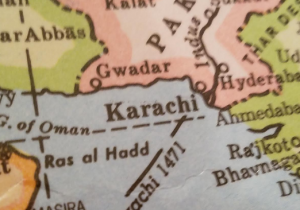NewsDesk @bactiman63
Karachi health officials are reporting an additional case of Primary Amoebic Meningoencephalitis (PAM) due to the amoeba parasite, Naegleria fowleri in a 23-year-old man. It is not clear how he contracted the amoeba.

This is the seventh case of the lethal parasite reported in the city this year to date.
According to health authorities, the man is in critical condition at a private hospital.
To date, five deaths have been reported and one person survived.
Naegleria fowleri is a microscopic amoeba which is a single-celled living organism. It can cause a rare and devastating infection of the brain called primary amebic meningoencephalitis (PAM). The amoeba is commonly found in warm freshwater such as lakes, rivers, ponds and canals.
Infections can happen when contaminated water enters the body through the nose. Once the amoeba enters the nose, it travels to the brain where it causes PAM (which destroys brain tissue) and is usually fatal. Infections usually occur when it is hot for prolonged periods of time, which results in higher water temperatures and lower water levels.
Naegleria fowleri infections are rare. Most infections occur from exposure to contaminated recreational water. Cases due to the use of neti pots and the practice of ablution have been documented.
Subscribe to Outbreak News TV on YouTube
You cannot be infected with Naegleria fowleri by drinking contaminated water and the amoeba is not found in salt water.
Initial symptoms of PAM usually start within 1 to 7 days after infection. The initial symptoms may include headache, fever, nausea, or vomiting. Other symptoms can include stiff neck, confusion, loss of balance, seizures, and hallucinations. After the start of symptoms, the disease progresses rapidly.
- Co-infection by novel species of parasite is confirmed in visceral leishmaniasis patient
- Bubonic plague cases reported in North China’s Inner Mongolia Autonomous Region
- Measles cases top 3,000 in Kazakhstan
- South Korea issues warning about dengue and other mosquito-borne infectious diseases when traveling abroad
- Thailand dengue update, 1st monkeypox death
- Cyprus: Feline Infectious Peritonitis outbreak results in death of up to 30% of cats
- Whooping cough in Denmark: Increased incidence of infections reported this summer
- Paraguay reports a marked decrease in chikungunya
- France reports 1st locally transmitted dengue cases of 2023
- Crimean-Congo hemorrhagic fever updates: Afghanistan, North Macedonia and Iraq


One thought on “Pakistan: 7th Naegleria fowleri case reported in Karachi”